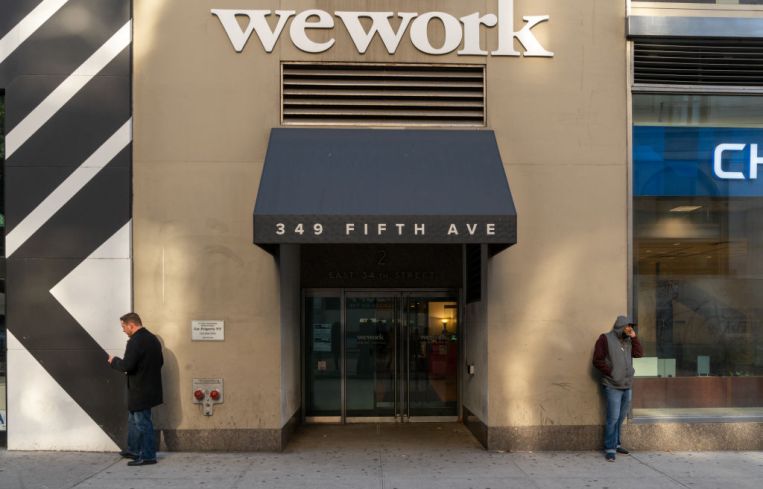WeWork Lost $3.2B in 2020, Looking to Raise $1B via SPAC
By Nicholas Rizzi March 22, 2021 5:25 pm
reprints
Coworking giant WeWork lost $3.2 billion last year — a slight improvement from 2019 — and is trying to raise $1 billion through a blank-check company, the Financial Times reported.
Documents showed to prospective investors obtained by the Financial Times shows that while WeWork pulled in $3.2 billion in revenue in 2020, it lost the same amount last year. However, that’s a bit better than the $3.5 billion WeWork lost in 2019.
A spokesperson for WeWork declined to comment.
WeWork’s pitch to investors also shows the impact of the coronavirus pandemic on the company’s portfolio. Occupancy rates at its locations across the globe fell to 47 percent at the end of 2020, a decrease from the 72 percent it had at the start of last year, FT reported.
After its failed attempt to go public, WeWork has been trying to do so through an alternative route by merging with a special purpose acquisition company (SPAC), an increasingly popular trend in real estate.
WeWork has been in talks to merge with SPAC BowX Acquisition Corp., along with raising money with other investors, FT reported. Its new deal would value WeWork at $9 billion, a far cry from its peak $47 billion valuation in 2019, but an improvement over its recent $2.9 billion valuation.
Experts previously told Commercial Observer that it makes perfect sense for WeWork to go public via a SPAC as it’s quicker than an initial public offering process and carries far less scrutiny.
Under the leadership of real estate legend Sandeep Mathrani, WeWork has spent the pandemic shedding underperforming locations around the country, renegotiating leases, and laying off staff to cut its cash burn.
In the third quarter of last year, WeWork cut its cash burn nearly in half from a peak of $1.4 billion in the fourth quarter of 2019, to $571 million, a source familiar with WeWork’s financials previously told CO. WeWork also reduced its long-term lease liabilities by more than $1.5 billion so far and slashed functional expenses by more than 50 percent.
And WeWork seems extremely confident those changes will pay off in the future, especially with an expected increase in demand for flexible workspaces, as employees want to ditch working from home but don’t want to commute far to an office.
WeWork told investors it expects its occupancy to increase to 90 percent by the end of 2020 and its revenues will climb to $7 billion by 2024, FT reported.
Mathrani has publicly said he expects WeWork to become profitable by 2021, and the company told investors it will hit $485 million of adjusted earnings before interest, taxes, depreciation and amortization in 2022, per FT.



